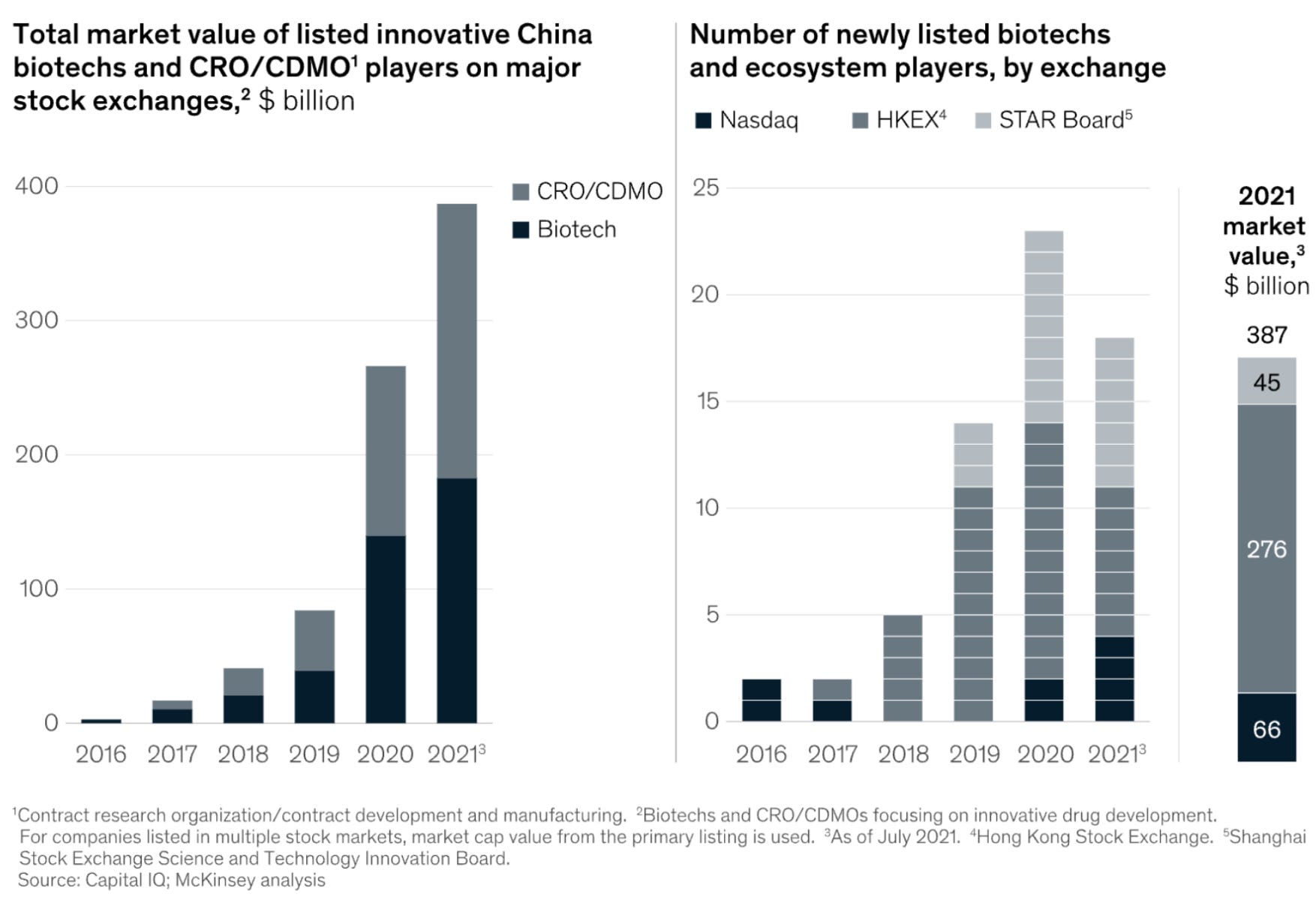Analyzing The Trump-Era FDA's Positive Influence On The Biotech Industry

Table of Contents
The Trump administration oversaw a period of unprecedented growth in the biotech industry, fueled in part by a renewed focus on regulatory efficiency and innovation within the Food and Drug Administration (FDA). This article, Analyzing the Trump-Era FDA's Positive Influence on the Biotech Industry, examines specific policies and actions that fostered this positive change, leading to accelerated drug development and market entry. The thesis is that the Trump administration's approach to FDA regulation created a more efficient and innovative environment for the biotech sector.
Accelerated Drug Approvals and Streamlined Regulatory Processes
The Trump administration implemented several key changes that significantly accelerated the drug approval process. This resulted in faster access to potentially life-saving treatments for patients and reduced the time and cost for companies to bring innovative therapies to market.
Right-to-Try Initiatives and Expanded Access to Experimental Treatments
The "Right to Try" movement, gaining momentum during this period, aimed to provide terminally ill patients with access to experimental treatments not yet approved by the FDA. While not directly an FDA initiative, the supportive climate encouraged by the administration potentially sped up development by offering real-world data from expanded access programs. This data could inform subsequent clinical trials and accelerate the approval process for promising therapies. However, ethical considerations and debates surrounding informed consent and the potential for exploitation remained.
- Increased patient access: Patients gained access to potentially life-saving medications earlier than under previous regulations.
- Real-world data generation: Expanded access programs offered valuable real-world data, potentially streamlining future clinical trials.
- Ethical considerations: Concerns around informed consent and potential for exploitation needed careful consideration.
Faster Approvals through Breakthrough Therapy Designation and Priority Review Vouchers
The FDA continued its use of Breakthrough Therapy Designation (BTD) and Priority Review Vouchers (PRVs), significantly expediting the approval process for promising drugs. BTD grants accelerated development and review for drugs demonstrating substantial improvement over available therapies. PRVs, often awarded for developing treatments for rare diseases, allow companies to skip the standard review queue, significantly reducing wait times.
- Breakthrough Therapy Designation (BTD): Facilitated faster review and approval for drugs showing substantial clinical improvement.
- Priority Review Vouchers (PRVs): Accelerated the FDA review process for specific drug candidates.
- Time-to-market impact: These expedited pathways dramatically shortened the time it took to bring innovative treatments to patients.
Reduced Regulatory Burden and Streamlined Application Processes
The Trump administration focused on reducing unnecessary regulatory burdens. This included streamlining application processes, reducing paperwork, and improving communication between the FDA and biotech companies. The aim was to make the drug development and approval process more efficient, less cumbersome, and more transparent.
- Simplified application processes: Reduced paperwork and administrative hurdles.
- Improved communication channels: Enhanced interaction and information flow between the FDA and biotech companies.
- Increased transparency: Greater clarity in the regulatory requirements and expectations.
Increased Focus on Innovation and Emerging Technologies
The Trump administration also championed investments in advanced therapies and the adoption of emerging technologies, such as AI and big data, within the pharmaceutical sector. This forward-thinking approach further fueled the rapid progress seen in the biotech industry.
Investment in Advanced Therapies (e.g., Gene Therapy, CAR T-cell Therapy)
Significant investments were made to support the development of advanced therapies like gene therapy and CAR T-cell therapy. The FDA’s focus on these cutting-edge treatment approaches resulted in a surge of approvals, demonstrating a commitment to pushing the boundaries of medical innovation.
- Increased approvals of advanced therapies: A notable rise in the number of gene and cell therapies approved.
- Focus on future-oriented treatments: Signaled a commitment to developing revolutionary therapeutic options.
- Long-term impact on patient care: Improved outcomes and treatment options for patients with previously incurable diseases.
Support for Artificial Intelligence (AI) and Big Data in Drug Development
AI and big data analytics played an increasingly crucial role in drug discovery and development. The administration implicitly supported their application through policies that encouraged innovation and the use of new technologies to overcome traditional bottlenecks in drug development.
- AI-driven drug discovery: Leveraging AI to identify and validate potential drug candidates.
- Big data analytics: Using vast datasets to optimize clinical trials and improve treatment outcomes.
- Enhanced efficiency and reduced costs: Streamlining various stages of drug development through advanced technologies.
Enhanced Collaboration and Communication between the FDA and the Biotech Industry
A key component of the Trump-era FDA’s success was a renewed focus on improving collaboration and communication between the agency and the biotech industry. This fostered a more efficient and mutually beneficial relationship.
Increased Transparency and Improved Communication Channels
The administration emphasized transparency and clear communication. Improved communication channels fostered trust and efficient information exchange between the FDA and industry stakeholders, facilitating a smoother and more collaborative regulatory process.
- Open communication channels: Improved access to information and regular dialogue.
- Clear regulatory expectations: Reduced ambiguity and uncertainty for biotech companies.
- Faster resolution of issues: Streamlined communication contributed to quicker decision-making.
Engagement with Industry Stakeholders and Public-Private Partnerships
Strategic public-private partnerships accelerated drug development. By fostering collaboration between government agencies, academic institutions, and private companies, the Trump administration sought to leverage the collective expertise and resources to achieve common goals in the field of biomedicine.
- Successful public-private partnerships: Several examples of collaboration leading to accelerated drug development.
- Leveraging collective expertise: Combining the strengths of government agencies, academic institutions, and private companies.
- Efficient resource allocation: Optimizing the use of public funds to achieve maximum impact.
Conclusion: Assessing the Lasting Legacy of the Trump-Era FDA on Biotech Innovation
Analyzing the Trump-Era FDA's Positive Influence on the Biotech Industry reveals a period of significant advancements driven by streamlined regulatory processes, increased investment in innovation, and enhanced collaboration. The policies implemented during this era resulted in faster drug approvals, accelerated the development of advanced therapies, and fostered a more efficient and innovative environment for the biotech sector. The long-term implications of these policies continue to shape the landscape of biomedical research and patient care. To further understand the nuances of the Trump-era FDA's influence on biotech innovation, explore the specific regulations and case studies detailed in [link to relevant resources].

Featured Posts
-
 Price Gouging Concerns Rise After La Fires A Selling Sunset Star Speaks Out
Apr 23, 2025
Price Gouging Concerns Rise After La Fires A Selling Sunset Star Speaks Out
Apr 23, 2025 -
 Infotel Et Sa Valeur Ajoutee Un Succes Client Du 17 02
Apr 23, 2025
Infotel Et Sa Valeur Ajoutee Un Succes Client Du 17 02
Apr 23, 2025 -
 Yankees Record Breaking 9 Homer Game Judges 3 Hrs Power 2025 Season Opener
Apr 23, 2025
Yankees Record Breaking 9 Homer Game Judges 3 Hrs Power 2025 Season Opener
Apr 23, 2025 -
 Ryujinx Emulator Shuts Down Following Nintendo Contact
Apr 23, 2025
Ryujinx Emulator Shuts Down Following Nintendo Contact
Apr 23, 2025 -
 Aaron Judges Historic Night Yankees 9 Homer Game Sets New Record
Apr 23, 2025
Aaron Judges Historic Night Yankees 9 Homer Game Sets New Record
Apr 23, 2025
